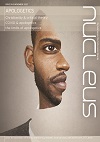None of my non-Christian friends have become Christians. I find it difficult to express the emotion I feel when I mull over that fact. There is pain unique to each person, as of course I want nothing more than to see my dearest friends brought to Christ. But very soon my thoughts turn to introspection, and I mourn my weak faith and my presumably even weaker arguments. 'What must I do to be saved?' the Philippian jailer asked Paul and Silas. [1] 'What must I do to save others?', I find myself asking. Therein lies the danger of apologetics. If we believe that we can win someone over to the Lord by the strength of our arguments alone, we step onto a slippery slope that leads to anxiety, self-doubt and sometimes even the loss of our own faith. Apologetics can be a powerful tool, one which I believe should have a permanent place in the Christian repertoire, but like any tool it does not guarantee success.
Peter & Paul
In my recent quiet times, I have been reading through the book of Acts. While the early New Testament church cannot be used as an exact blueprint for modern church life, it is usually a great place to start. What can we learn from Paul and Peter and their powerful speeches to the Jews and the Gentiles? Paul is probably the first person to give apologia for his faith, as recorded in Acts 13, 14 and 17. His message changes depending on his audience — the Athenians in chapter 17 are already an overtly religious group who love philosophical debate, so Paul uses beautifully crafted Greek and rhetorical devices. There would even have been points that coincided with the dominant Stoic philosophy of the region. He argues persuasively in a way that is familiar to his listeners, yet abundantly clear.What struck me more, though, was Peter's approach in the first half of the book. He addresses many different groups of Jews and yet his structure is identical every time. He begins with a piece of historical context or prophecy, often with reference to their Jewish ancestors. Then he proclaims Jesus' death and resurrection, before doubling back to more history or prophecy. He meets with a variety of responses but is undeterred, doing the same again and again. Apologetics has its place in the New Testament Church but is by no means the only way to evangelise. It is often better simply to present the gospel and show people Christ. Paul himself in Romans 1 writes that 'God has made it plain to [people].'
roadblocks & red herrings
Think about the last time you had an argument with a family member or loved one. A very common tactic is to try and deflect onto them: 'Well yes maybe I was late for dinner, but you can't take criticism.' [2] Many apologetics conversations fall into the same category. Being presented with the gospel means being faced with your own sinfulness and inadequacy. It means denying yourself, taking up your cross and following Jesus. [3] But if you can throw out an intellectual red herring, you can hold onto the possibility that none of it is true and none of it applies. You can shift the spotlight from your imperfections onto the supposed imperfections of God. Focusing too much on apologetics can give these red herrings more airtime than they deserve. We must never be dismissive; we must always acknowledge and be respectful. But we should then gently steer around the issue and get to the root of the problem.Sometimes, though, the issue at hand is more a roadblock, not a red herring. A couple of my closest friends are members of the LGBTQ+ community, and for them the main barrier to becoming Christians is that they feel they would have to give up a significant portion of their identity. To the best of my knowledge, this is not a distractor but a genuine deep-seated painful holdup for them.
Again, I believe the solution is to show people Christ — for this issue, perhaps, that Christianity means taking on a new, greater identity and receiving a gift far more precious than what they would have to give up. Easy to say of course; much harder to live out. Bear that in mind the next time you set yourself up to deliver an apologetic slam-dunk. Not everybody is a smug self-satisfied debate artist who would love to see your entire worldview torn to shreds. Many of the conversations you have will be with a scared, deeply shaken person who is trying to make sense of the world and experiencing spiritual warfare in all its horror. Roadblocks need to be dismantled, but we should do so with love and grace.
diathermy & staplers
I was often tempted to watch apologetics debate videos with a mental (or literal) pen and paper, noting down the arguments used and preparing to unleash them upon my unsuspecting friends. I envisaged the Christian equivalent of the Monty Python 'Killer Joke' — I would stroll into any gathering, deliver a few perfect sentences, and smile in beatific satisfaction before herding the convicted masses into churches to be baptised. My error was to believe there was such a thing as a completely airtight argument that would win any apologetics debate. Instead, I think the most we can say is that some arguments are perhaps stronger or more widely applicable, while others are weaker or more focused. Returning to the 'tool' analogy for a moment: diathermy is an excellent surgical technique for cutting many tissue types, but it must not be used on the outer skin layers. Meanwhile, a stapler is unsurpassed in the field of stapling, and not much else.Everyone is different. From the second we are born, we are influenced by our background, upbringing, genes and personality. At any given moment, our reaction will be shaped by our energy levels or what we had for lunch. 'But Zack, this sounds a lot like context-driven truth!' I hear you cry. Fear not. My point is simply that the exact same argument might land today and fall short tomorrow. What works for one person might not work for another. What works for one person at one point in their life might not work at another time. We should pray instead that the Lord who knows people better than they know themselves would work in their lives.
the tool chest
When I was about six years old, I really wanted one of those humongous tool chests on wheels with seven drawers and 160 different tools. Of course, I would have had a use for about three of them at best, but it was all about the status for me. It would have denoted my ascension into manhood, my ability to conquer any task laid before me. I never did get that tool chest. Yet so often we attempt to construct the apologetics equivalent. We yearn to have an answer for every objection, never to be caught out. 'Always be prepared to give an answer to everyone who asks you to give the reason for the hope that you have,' says Peter. [4] Surely reading wider and studying more will fulfil the requirements of this verse? No. John Calvin puts it very eloquently: 'Peter here does not command us to be prepared to solve any question that may be mooted…[he] had in view no other thing, than that Christians should make it evident to unbelievers that they truly worshipped God, and had a holy and good religion.' [5]The Pulpit Commentary is much more direct: 'Some answer every Christian ought to be able to give.' We should not be struck dumb by fear of rejection or persecution. The only requirement of this verse is that we are prepared to give an answer. Studying the Bible may deepen our answer and perhaps make it more profound, at least from a human perspective, but often the best defence is simply to tell our own story.
sowing & reaping
'What must I do to save others?' I posed the question at the beginning of this article. Logically, if we believe that our failure to bring people to Christ is our own doing, it follows that we must be the ones at fault. We try the 'better' arguments and present them like the great apologists do. When that fails, all that is left is our personal relationships with God — and since we are human, those relationships will be flawed. The cracks in our Christian lives merge with the cracks in our arguments until we begin to accuse ourselves of hypocrisy, or start agreeing with the very doubts we are seeking to assuage. We see our role models seemingly bringing scores of people to faith and we tell ourselves that, surely if we were proper Christians, we would see results. The initial premise of such reasoning is flawed, because of course we do none of this in our own strength. Every soul brought into the kingdom was first written in the Book of Life. 'And those [God] predestined, he also called; those he called, he also justified; those he justified, he also glorified.' [6]If the Holy Spirit has not worked to soften the heart of our listener, then every word we say will be like the seed which fell on the path, the rocky ground or among thorns. The answer to my question is therefore simple: to save others, we must pray first and foremost. If we are not immediately successful, it does not mean our faith is weak, our understanding is shallow, or our prayer is ineffectual. I discovered fairly recently that one friend of mine actually has become a Christian after all. We had a 'good conversation' three years ago and she seemed so entrenched in her worldview that nothing I said appeared to sway her. Yet unbeknownst to me, a year later she started attending a church, and a year after that she gave her life to Christ. Whether that has anything to do with me I may never know, but God had his own perfect timing. Sometimes we go out hoping to reap the harvest and end up planting seeds. It even happened to the apostle Paul himself, and he acknowledges the true source of all persuasion. 'I planted the seed, Apollos watered it, but God has been making it grow.' [7] 'Thus the saying "One sows and another reaps" is true.' [8]
If we believe that we can win someone over to the Lord by the strength of our arguments alone, we step onto a slippery slope that leads to anxiety, self-doubt and sometimes even the loss of our own faith many of the conversations you have will be with a scared, deeply shaken person who is trying to make sense of the world and experiencing spiritual warfare in all its horror if the Holy Spirit has not worked to soften the heart of our listener, then every word we say will be like the seed which fell on the path, the rocky ground or among thorns
































